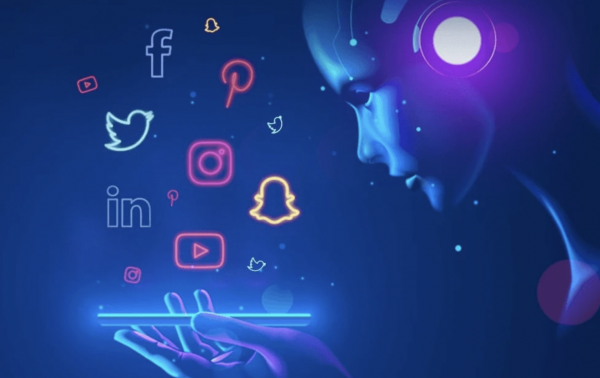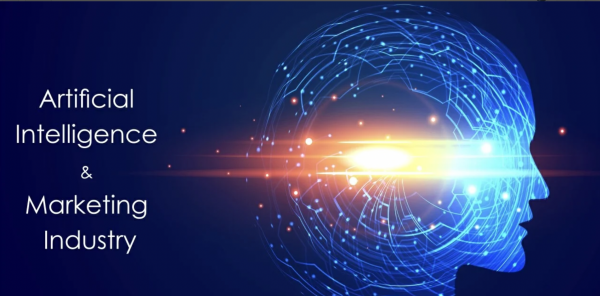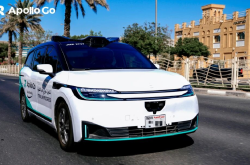Six Major AI Marketing Trends in 2025, Breaking Traditional Marketing Boundaries
![]() 11/18 2024
11/18 2024
![]() 618
618
Artificial intelligence is rapidly flooding marketing departments worldwide. As 2025 approaches, this technological revolution is not only changing the way we market but also redefining the core meaning of "marketing".
Reviewing digital trends over the past few decades, this profound transformation in how businesses connect with customers is unprecedented.
While AI and automation are undoubtedly the stars of the show, other intriguing developments range from cultural evolution to increased emphasis on digital privacy.
Let's delve into the six most significant trends in AI marketing for the coming year.
The buzz around AI-generated technology isn't just hype; it heralds a fundamental shift in content creation.
But intriguingly, while many marketers are still stuck on basic ChatGPT-generated blog posts, true innovators are pushing boundaries we didn't even know existed.
Some creators are adjusting real-time content, enabling AI marketing to react to "context and audience sentiment."

Meanwhile, forward-thinking content creators are pondering deeper: how to integrate AI into the creative process itself.
They're not just generating content with AI; they're teaching audiences to engage with AI in new ways, creating engaging and authoritative 'content within content' that enhances interaction.
In 2025, we'll witness true dynamic content that adapts to audience behavior, time of day, and even global events, elevating the concept of marketing 'micro-moments' to a new level.
While AI's role in tactical marketing operations is well-established, 2025 will mark its emergence as a vital strategic partner.
We're moving beyond basic data analytics and recommendation systems into an era where AI actively participates in high-level planning and decision-making.
Imagine AI systems predicting future market trends with unprecedented accuracy, simulating entire marketing campaigns before launch, and optimizing resource allocation in real-time.
This strategic evolution of AI is noteworthy, particularly as it's happening first in marketing departments.

As we enter 2025, marketing teams are becoming the testbed for AI's role in strategic business decisions, setting the stage for other businesses to follow.
Integrating generative AI into search engines isn't just an upgrade; it's a total redefinition of how people access information online.
With Google and Bing embedding AI-generated responses directly into search results, marketers face a fundamental shift in visibility - no longer relying on traditional SEO methods but on an entirely rewritten playbook.
What's particularly captivating about this trend is the user behavior shift, akin to the transition from desktops to mobile, as AI chatbots become the preferred tool for information search.
Marketers now face the challenge of not just ranking in traditional search results but ensuring brand messages are effectively conveyed through AI-generated answers.
It's no longer just about keywords but understanding the AI systems becoming the new gatekeepers of information.
If content is king, video remains the crown jewel.
The demand for fast, engaging video content shows no signs of waning, especially among Gen Z consumers. What's changing is the sophistication of video creation and distribution.
AI-driven video production tools enable large-scale personalized, targeted video content, while new formats like shoppable videos and live streaming open new possibilities for brand engagement.
User-generated content remains powerful, but tools and platforms for creating and sharing are becoming smarter.
In 2025, the ability to create, optimize, and distribute video content won't be a question of technical capability but strategic application.
Virtual influencers have been around for a while, but by 2025, they'll become 'truly smart.'
We're moving beyond static digital avatars to AI-driven, personalized virtual characters that engage in meaningful real-time interactions with audiences. It's no longer just about posting pretty pictures but building genuine connections through intelligent conversations.
Imagine a digital person perfectly embodying brand values, available 24/7, and engaging in personal conversations with thousands of fans simultaneously - a game-changer for brands.
Marketing has long grappled with the balance between personalization and privacy. In 2025, this balance becomes more critical and complex than ever.
Savvy marketers are adopting 'privacy-first personalization,' offering highly relevant experiences while maintaining transparency and ethics in data practices.
This isn't just about complying with growing regulations but building trust in an era where consumers are increasingly aware and concerned about their digital footprints.
Marketers who succeed in 2025 will be those who truly commit to protecting consumer privacy while delivering personalized experiences.
Looking ahead, success in marketing in 2025 clearly goes beyond adopting new technologies; it's about thoughtfully and strategically leveraging them to create real value.
The most successful marketers won't be those chasing every new trend but those integrating innovations into a cohesive customer-centric strategy.






